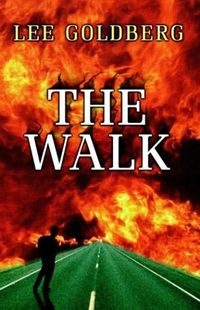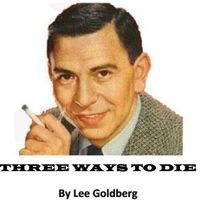My friend author Joe Konrath has done extraordinarily well selling some of his unpublished books on the Kindle, making $1250 in royalties this month alone. That's very impressive. And since its free and easy to upload your book to Amazon for sale on the Kindle, I'm sure that Joe's success is very exciting and encouraging news to a lot of aspiring writers out there. But I suspect Joe's success is the exception rather than the rule. That said, he is encouraging others to follow his lead. He writes:
The average advance for a first time novel is still $5000. If Kindle keeps growing in popularity, and the Sony Reader opens up to author submissions like it intends to, I think a motivated writer will be able to make $5000 a year on a well-written e-novel. Or more. All without ever being in print.
[…]Robert W. Walker, has written over forty novels. Most of them are out of print, and the rights have reverted back to him. If he digitized and uploaded his books, and priced them at $1.59 (which earns him 70 cents a download), and sold 500 copies of each per month (I sold 500 of Origin and 780 of The List in May), he'd be making $14,000 a month, or $168,000 a year, on books that Big NY Publishing doesn't want anymore.
Even if he made half, or a third, or a fifth of that, that's decent money on books that he's not doing anything else with. Now, all of us aren't Rob, and we don't have 40 novels on our hard drives, especially 40 novels that were good enough to have once been published in print.
But how long do you think it will be before some unknown author has a Kindle bestseller?
Joe is making a lot of assumptions based on the admirable success of his own Kindle titles. It's a big, big, BIG leap to think, just because his book has done well, that Robert W. Walker (or any other mid-list author) will sell 500 copies…or even 50 copies…of his out-of-print books on the Kindle each month.
But just for hell of it, I decided to follow Joe's advice and put my out-of-print 2004 novel THE WALK and a short-story collection THREE WAYS TO DIE up on Amazon for sale on the Kindle and see what happens.
So far, after only a few days on Amazon, sales of those Kindle editions have been brisk. For instance, today THREE WAYS TO DIE was ranked as Amazon's #30 bestselling Kindle short story collection and the 40th top-selling hard-boiled Kindle mystery.
Pretty impressive, huh?
And it's paying off in the wallet, too, my friends. I've already raked in ten dollars in royalties. So I spent today at the Bentley dealership checking out the car I'm going to buy at year-end with my Kindle royalties.
I do not mean to belittle Joe's success on the Kindle. It is truly impressive and its a reflection of his considerable promotional skills (as well, I'm sure, of the quality of the books themselves). But do I think the vast majority of published, as well as unpublished, writers can easily achieve the same success he has with Kindle editions? No, I don't.
But I would love to be proved wrong. I'll report back at the end of the month on how my Kindle sales on these two titles are doing.
(Incidentally, several of my MONK and DIAGNOSIS MURDER books are also available on the Kindle. Although the MONK books sell very well in hardcover and paperback, the Kindle sales are miniscule…and keep in mind that my MONK books, unlike those that an unknown writer might put up for sale on the Kindle, benefit from the huge advertising, promotion, and brand awareness that goes along with a hit TV series)
UPDATE 6-11-2209: Joe Konrath has updated his Kindle sales figures and they are pretty impressive. Here's a sample:
On April 8th, I began to upload my own books to Kindle. As of today, June 11, at 11:40am, here is how many copies I've sold, and how much they've earned.
THE LIST, a technothriller/police procedural novel, is my biggest seller to date, with 1612 copies sold. Since April this has earned $1081.75. I originally priced it at $1.49, and then raised it to $1.89 this month to see if the sales would slow down. The sales sped up instead.
ORIGIN, a technothriller/horror occult adventure novel, is in second place, with 1096 copies sold and $690.18. As with The List and my other Kindle novels, I upped the price to $1.89.
SUCKERS is a thriller/comedy/horror novella I wrote with Jeff Strand. It also includes some Konrath and Strand short stories. 449 copies, $306.60.
Joe also talks about some of the lessons he's learned along the way. I'll post the stats from my experiment at the end of the month.


